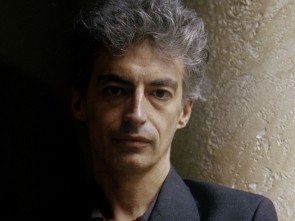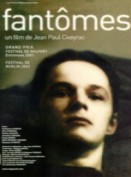
Jean-Paul Civeyrac
Films in our catalogue
THROUGH THE FOREST
After Renaud’s death in a motorcycle accident, Armelle can’t get her lover out of her mind and believes he is still living by her side. Her sisters Roxane and Bérénice are worried about her and one of them suggests she should go to a medium for help. (...)
THE LONERS
Pierre lives with the painful memory of his dead wife. Sometimes, her ghost appears, bringing him peace. But, one day, Baptiste, Pierre's brother, comes to stay, upsetting the daily (...)
MEN'S GENTLE LOVE
This is the story of a young man at the dawn of the 21st century. He belongs to the most vulnerable, most futile and most appealing segment of society. Raoul flits from woman to woman, searching for seemingly unattainable love, until he meets Jeanne, who is (...)
ALL THE FINE PROMISES
Coming off the bad end of a doomed love affair, and trying to cope with her Mother’s death, Marianne is surprised to discover that her Father’s last will and testament was not correctly administered. The will reveals the existence of a lover, who is (...)
Biography
Jean Paul Civeyrac is a director to be reckoned with in contemporary French cinema. With Toutes ces belles promesses, which he wanted to make happier and more radiant than the novel Hymnes à l'amour on which it is based, the filmmaker's fifth feature film shows him at the height of his powers. Jean Paul Civeyrac was born on Christmas Eve in 1964. He studied philosophy at the University of Lyon III (he finished in 1986 with a dissertation on filmed opera), before going to Fémis (Paris). There he made a series of short films which drew a lot of attention, including La vie selon Luc, which was screened at numerous festivals. In 1996, five years after leaving Fémis, his first feature film, Ni d'Eve ni d'Adam made a strong impact. He swiftly followed this with the script for Le Doux amour des hommes, and whilst waiting for financing, wrote another which was to become Les Solitaires (1999), then Fantômes (2000). It is as though there are "dissolves" between Civeyrac's films, that move him from the fantastic towards a more realist style. Still not having raised the budget for Le Doux amour des hommes, he revised the script. The film was released in 2002 (with Serge Bozon, screened in the Cinéastes du présent section). When Civeyrac met Pierre Chevalier, Arte's fiction project manager, the latter was keen to produce Toutes ces belles promesses. Extract from the treatment: "We have highlighted the musical aspect of the film. There is of course the Piaf song, classical music, and also another song[…], a kind of antidote to that of Piaf. Hers celebrates passion, amour fou; ours is a hymn to emotional buoyancy as a much better prospective for a happy life. The one is full of pathos, the other isn't. As if the two songs were fighting it out. As if all the melancholy of the book (which only recounts stories about love that is unfilfilled, unhappy or doesn't work out) found its counterbalance in a wonderful enthusiasm for life."




